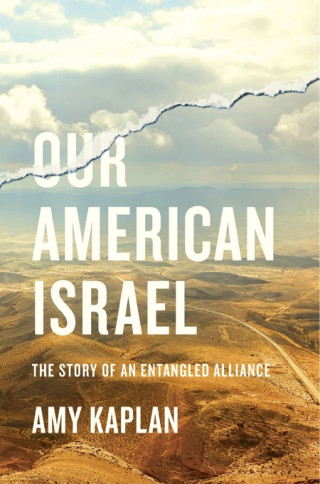To be fair, American Holocaust memorialization is not solely about the rosy side of American involvement in the Holocaust; it has often incorporated criticism of the United States’ lack of preventative action. In his 1979 introduction to the report of the President’s Commission on the Holocaust, Elie Wiesel wrote, “How many victims, Jews and non-Jews could have been saved had we changed our immigration laws, opened our gates more widely, protested more forcefully. We did not. Why not?” The commission recommended that an American Holocaust museum acknowledge both the United States’ success in participating in the camps’ liberation and its failures at preventing the Holocaust. But, as cultural historian Amy Kaplan argues in Our American Israel, the narrative of American guilt has had less cultural resonance than the elevation of the American GI as Holocaust rescuer. And in some cases, even the criticisms of United States’ policy have served to endorse the importance of American military might. When it opened, the Holocaust museum had an exhibit arguing that bombing Auschwitz would have saved lives (a fact that is actually debated by historians), which, Kaplan says, became a talking point for proponents of American military intervention in later conflicts.
Throughout the years, presidents who have visited the US Holocaust Memorial Museum have used their speeches to point at violence across the world. George W. Bush used his 2007 visit to the US Holocaust Memorial Museum to discuss his approach to genocide in Sudan. In a 2012 visit, Obama discussed his administration’s approach to human rights crimes in Sudan, Côte D’Ivoire, Libya, and Uganda. Keeping an eye open to international violence is crucial. But the cumulative effect is that the US is always painted as disapproving bystander, never perpetrator. State-backed crimes against humanity, these politicians suggest, happen far from America. Therefore, speeches about the Holocaust become an opportunity for patriotism.
In Ronald Reagan’s speech at a 1983 gathering of Holocaust survivors, he acknowledged that the US did not have a “spotless” record of avoiding bigotry, but went on to describe the US as uniquely responsible for guarding the memory of the Holocaust because of its superior moral standing as a nation. “Earlier, I described our country as a compact between good and decent people,” he said. “I believe this, because it is the love of freedom, not nationalistic rituals and symbols, that unites us . . . We are the keepers of the flame of liberty.”
